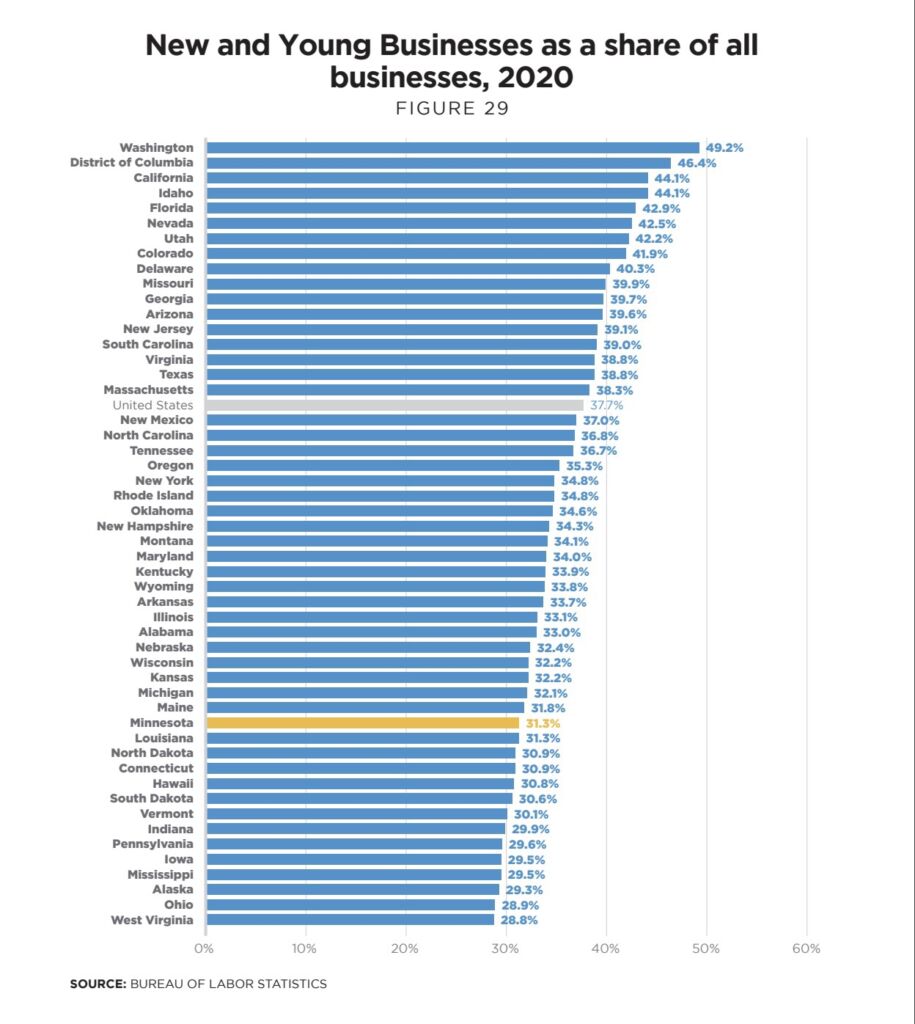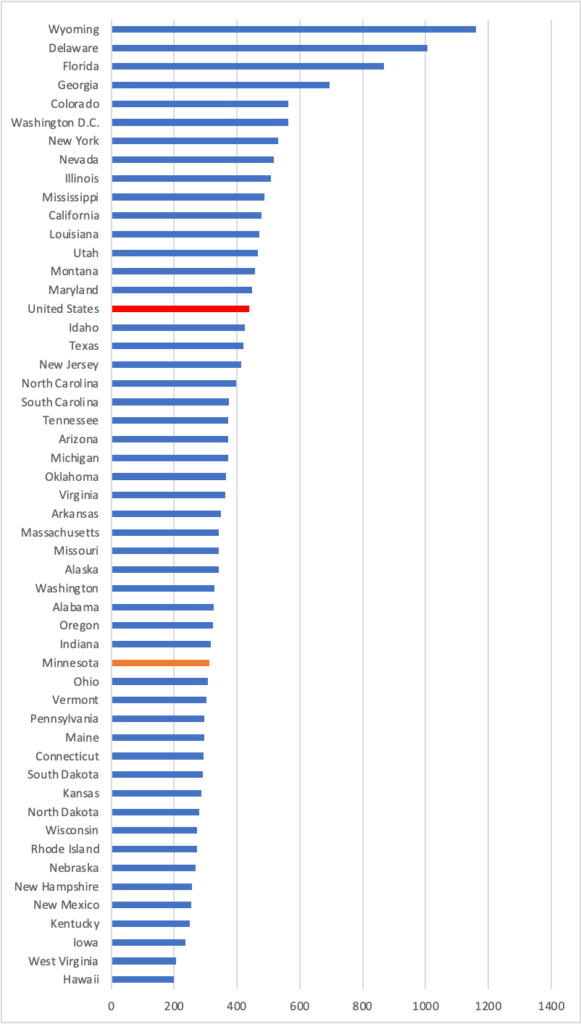Fact-checking Gov. Walz on Minnesota’s economy
According to Governor Tim Walz,
And while celebrating ‘free the growlers,’ he said
But is that true?
Minnesota does have a historically low unemployment rate, but as I wrote yesterday, this statistic is hiding some unpleasant news.
For one, our labor force participation rate is still lower than it was before the pandemic. Other states have done better in getting workers back into the labor force — including our neighbors who also have historically high labor force participation rates. Not to mention that the recent update shows that Minnesota’s employment declined for the first time in over a year.
Minnesota is not in the top ten best states to start a business
Minnesota ranks well on business survival. According to the Bureau of Labor Statistics, between 2015 and 2020, more than 50 percent of all businesses created in Minnesota survived the past five years — earning us the top stop.
However, Minnesota does not do so well when it comes to business creation itself. In 2019, for example, Minnesota ranked 14th lowest among the states on business creation — illustrated as New and Young Business as a share of all businesses. Other states, like Washington, Florida, and even California do a better job of creating new businesses.

That Minnesota is not among the top states for business is something that a lot of studies agree on. In the most recent Business Tax Climate — a Tax Foundation study that analyzes taxes and how they affect businesses — for example, Minnesota ranked as the 45th most tax-friendly state for businesses. So, not the top ten but the bottom ten.
The Economic Freedom of North American Index — an all-encompassing study that analyzes performance on numerous metrics that affect business operations — ranked Minnesota the 38th freest state in the United States in 2018. Minnesota also ranked 38th on Cato’s Freedom in the 50 states study.
While Minnesota does rank slightly favorably on Cato’s entrepreneurial regulatory barriers index, it is still not in the top ten. According to Cato, when it comes to regulation that specifically affects entrepreneurship, Minnesota ranked 22nd in 2021.
Minnesota is one of the most highly taxed states in the country. It does not do better on regulation either. Even among states that rank Minnesota favorably on doing business — like CNBC’s America’s Top States for Business — ranks Minnesota unfavorably on most metrics that directly affect doing business.
In their 2022 update, for example, CNBC ranked Minnesota 40th on the cost of doing business and 32nd on business friendliness even though it ranked Minnesota as the 9th top state for doing business. That score is pumped up by other metrics that have little to do with doing business — like life, healthy, and inclusion.
The bottom line
The fact of the matter is that on the metrics that matter most for business — like taxes and regulation — most studies rank Minnesota near the bottom. Little to no evidence exists showing that Minnesota is creating businesses at a higher rate than most states.
In fact, in 2020, Minnesota ranked 35th on high propensity business applications — which are defined as businesses that are most likely to become a business with employees and payroll abilities.
Figure: High propensity Business Applications per 100,000 people, 2020

Whatever Walz thinks about Minnesota’s exceptionalism, it does not apply to our economy. If it did, highly skilled and highly productive Minnesotans would not be fleeing Minnesota for low-tax states.